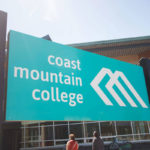
20 Apr Study in Canada
Canada is recognized as a country with very high education standards. Many of the world’s top-ranking colleges and universities are in Canada. Additionally, a degree, diploma or certificate earned from Canada is accepted and appreciated all around the world.
Canadian qualifications are greatly valued around the world, due to its high academic standards and stringent benchmarks of quality. While the quality of education and standard of living is very high, colleges and universities are surprisingly affordable.
With many diverse ethnic groups represented here, students from all countries find that they can fit in very easily. Campus lifestyles are exciting, with plenty of opportunities for leisure and extracurricular activities.
The universities in Canada offer a hands-on education involving case studies, project work, seminars and internships which ensures that bachelors, MS and MBA graduates of Canadian universities find themselves well-equipped to handle complex problems at work.
Good industry-academia tie-ups leads most deserving students to get placed within 3 months of their graduation.
Work Rights For Students
Students in Canada can work while they study, and gain worthy experience while they earn money. They can use two types of work rights while studying in Canada, i.e. On campus and Off Campus.
Full time students holding a valid study permit at an eligible institution can work on campus at the institution in which they are enrolled without a work permit.
Students can apply for an off campus work permit if he/she is a full-time student, with a valid study permit, at one of the institutions authorized by the Canadian government. Additionally, the student must have been a full-time student for at least 6 of the 12 months prior to applying for the work permit and must have achieved satisfactory academic standing.
If a student qualifies, he or she can work up to 20 hours per week during regular academic sessions; and work full-time during scheduled breaks, such as the winter and summer holidays or spring break.
Post-study Employment Rights
Canada offers post-study work permits far more readily than most other countries, and they often serve as a pathway to permanent resident status.
- Students whose course duration is less than 2 years but more than 8 months will be eligible for work permit for a period no longer than the length of their program of study.
- Students whose course duration is 2 years or more may be eligible for a work permit for up to 3 years.
Immigrate through Express Entry
From January 2015, Citizenship and Immigration Canada (CIC) has initiated a new electronic system called Express Entry to manage applications for permanent residence.
This is the first step to immigrate to Canada, and is applicable to certain economic immigration programs. Potential candidates can complete an Express Entry profile at any time. There is no time deadline to apply, and there is no limit on the number of candidates that will be accepted. Those who are accepted into the Express Entry pool could get an Invitation to Apply for permanent residence. Only top ranking candidates will be picked regardless of when they were accepted into the pool.
After being invited to apply, candidates will have 60 days to submit a complete Application for Permanent Residence online.
Dependants Stay
A Temporary residence visa (under visitor, student or worker category) may be provided to the spouse and children of students who wish to join the student in Canada, for the duration of the study period.
Course options in Canada
- BTech
- MBA
- MS
- BBA
- MASc
- BSc
- MIM
- MFin
- MEng
- MA
- MIS
- MArch
- MEM
- BHM









